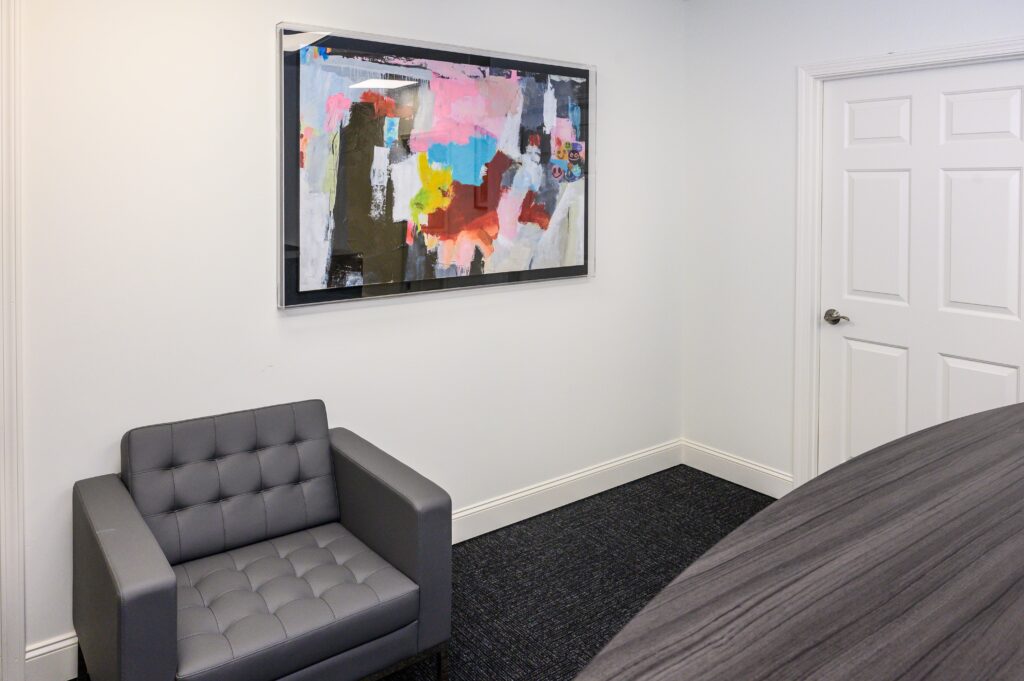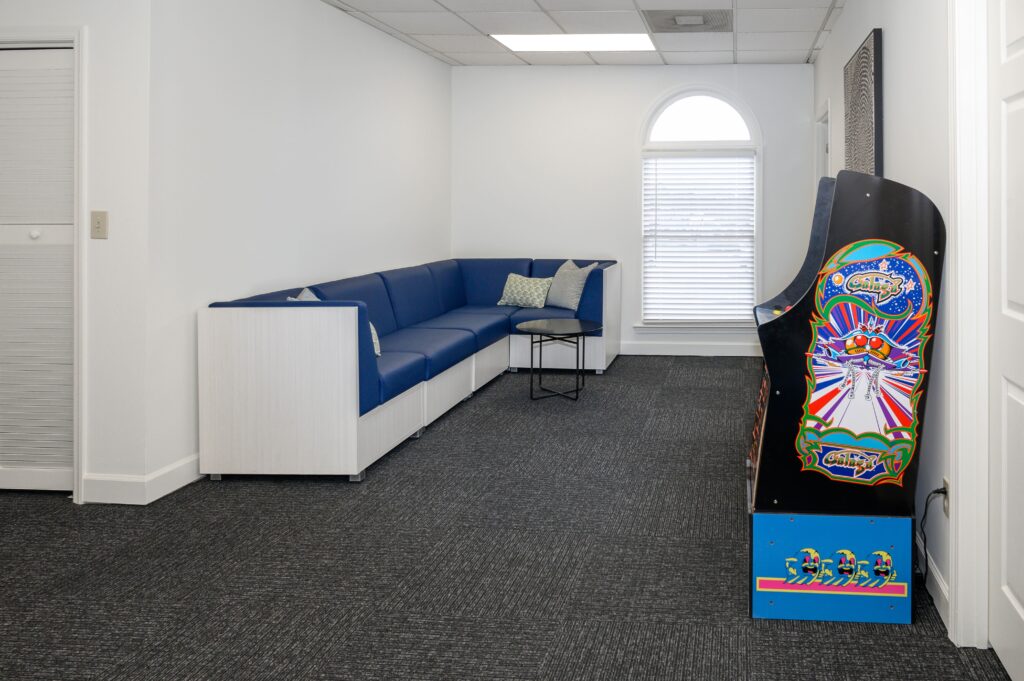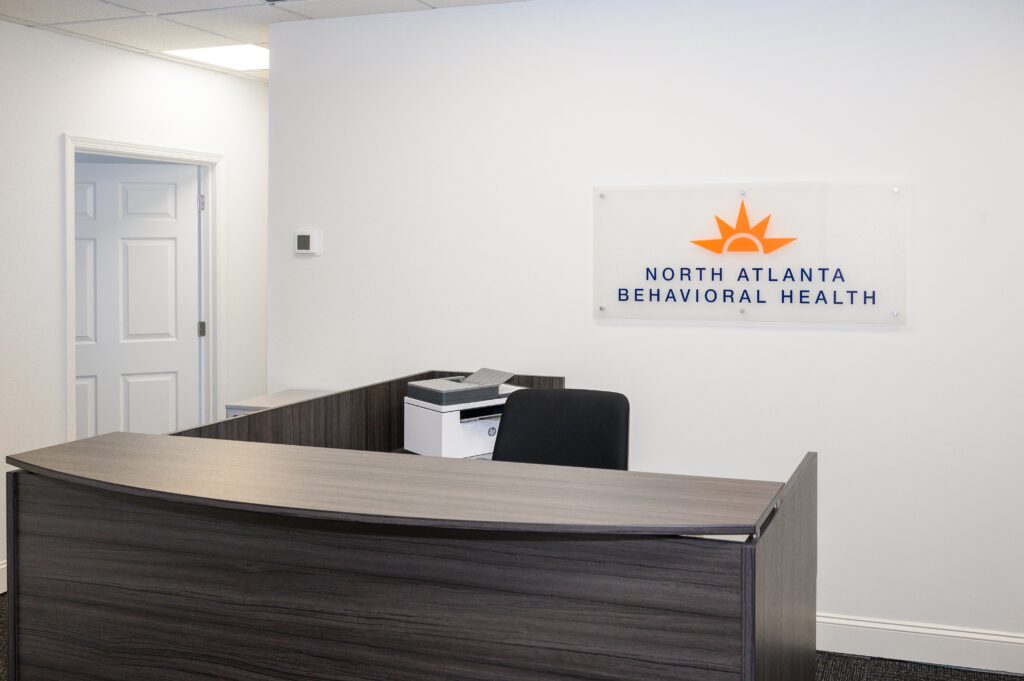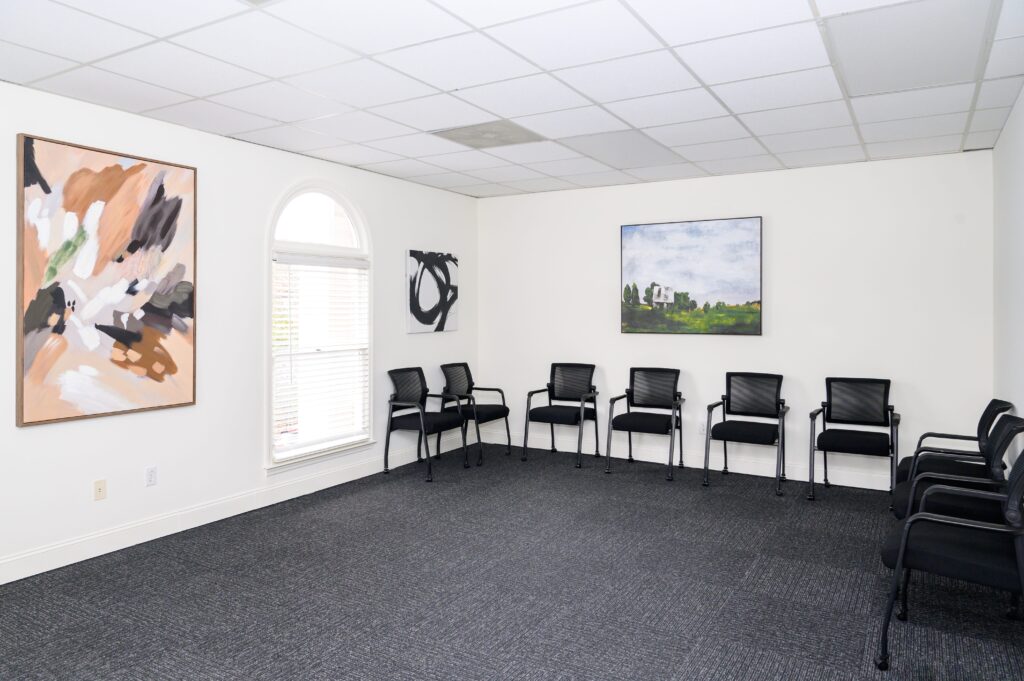
Contents
Begin Bipolar Disorder Treatment in Atlanta, Georgia
Mental health disorders cannot be treated by treating the symptoms alone. We use holistic and evidence-based methods to treat the entire individual.
At North Atlanta Behavioral Health, we provide effective, integrated, and highly individualized bipolar disorder treatment in Atlanta, Georgia. Understanding the complexities of bipolar disorder is crucial in navigating the path to comprehensive wellness. Our mental health treatment in Georgia offers personalized care, combining expertise with compassion to treat this multifaceted condition. If you or someone you love has been struggling with untreated bipolar disorder, we are available to help.
Call us now at 770-230-5699 or verify your insurance now.
What is Bipolar Disorder?
Bipolar disorder, formerly known as manic-depressive illness, is a mental health condition characterized by extreme mood swings that include emotional highs (mania or hypomania) and lows (depression). When a person becomes manic or hypomanic, they feel euphoric, full of energy, or unusually irritable. These periods are then followed by episodes of depression, often marked by feelings of sadness, hopelessness, and a loss of interest or pleasure in most activities.
The mood swings can affect sleep, energy, activity, judgment, behavior, and the ability to think clearly. These episodes are distinctly different from the person’s usual behavior and can last for days to weeks, severely impacting day-to-day life.
The exact cause of bipolar disorder is not entirely understood, but it involves a combination of genetic, environmental, and neurological factors. There is a high tendency for the disorder to run in families, suggesting a significant genetic contribution. Environmental factors, such as stress or significant life changes, can also trigger episodes.
Bipolar disorder is often diagnosed in late adolescence or early adulthood, although symptoms can appear at any age. Its management typically requires a lifelong commitment to treatment, which may involve a combination of medications and psychotherapy.
In addition, according to the National Institute on Mental Health (NIMH), “An estimated 4.4% of U.S. adults experience bipolar disorder at some time in their lives.” Proper treatment helps many people, even those with severe forms of the disorder, to lead full and productive lives.
How Does Bipolar Disorder Treatment in Atlanta Work?
At North Atlanta Behavioral Health, our approach to bipolar disorder treatment is multifaceted. We start with a thorough assessment to understand each individual’s unique experiences and needs. Our treatment plans often include a combination of psychiatry, medication management, psychotherapy, and lifestyle modifications.
We focus on evidence-based methods to ensure our patients receive the most effective bipolar treatment in Atlanta.

Signs and Symptoms of Bipolar Disorder
Recognizing the signs of bipolar disorder is the first step toward getting help. Common symptoms include significant mood swings, ranging from depressive lows to manic highs, and changes in sleep patterns, energy levels, and behavior. These symptoms can impact daily functioning and relationships, signaling a need for professional assessment.
Additional symptoms of bipolar disorder include:
- Extreme mood changes, including highs (mania or hypomania) and lows (depression).
- Periods of high energy, euphoria, or irritability, often with a reduced need for sleep, which are known as manic episodes.
- Periods of feeling sad, hopeless, or empty, with a lack of energy and an increased need for sleep, which are known as depressive episodes.
- Difficulty sleeping during manic episodes and oversleeping during depressive episodes.
- Extremely active, agitated, or restless behavior during manic phases and sluggishness or lethargy during depressive phases.
- Making poor decisions, such as spending sprees, reckless driving, or impulsive investments during manic episodes.
- Fast, frenzied, or uncontrollable thoughts during manic episodes.
- Inability to focus or concentrate, often more noticeable during manic episodes.
- Talking very fast, often with racing ideas or abrupt changes in topic (more common during manic episodes).
- Engaging in behavior that is out of character, such as risky sexual behavior or substance abuse, particularly during manic episodes.
- Unrealistically inflated self-esteem or feelings of superiority, most often seen in manic episodes.
- Isolation or loss of interest in activities once enjoyed, especially during depressive episodes.
It is important to note that bipolar disorder varies significantly among individuals, and not everyone will experience all these symptoms. Additionally, the severity and frequency of these symptoms can vary widely.
Types of Bipolar Disorder
There are different types of bipolar disorders, each with its unique characteristics:
- Bipolar I Disorder: Characterized by manic episodes lasting at least seven days or manic symptoms severe enough to require immediate hospital care.
- Bipolar II Disorder: Involves a pattern of depressive episodes and hypomanic episodes, but not the full-blown manic episodes of Bipolar I.
- Cyclothymic Disorder: Also called “cyclothymia,” this is a milder form of bipolar disorder with periods of hypomanic symptoms and periods of depressive symptoms lasting for at least two years.
Causes of Bipolar Disorder
The causes of bipolar disorder are complex and multifaceted, involving a mix of genetic, environmental, and neurological factors.
- Genetics: There is a significant hereditary component, as the disorder often runs in families.
- Environmental: Stressful life events such as trauma, financial problems, or the loss of a loved one can trigger the onset of bipolar disorder in individuals who are genetically predisposed.
- Neurological: Imbalances in neurotransmitters or hormones that regulate mood and energy levels can contribute to the development and progression of the disorder.
While the exact cause varies from person to person, these factors often interact in complex ways to increase the risk of developing this mental health condition. At North Atlanta Behavioral Health, we understand that each case is unique and consider all possible contributing factors to tailor our treatment approaches.
Overcome mental health disorders with evidence-based, expert care.
Our Atlanta, Georgia Bipolar Disorder Treatment Programs
Our outpatient treatment programs are designed to address the specific needs of those living with bipolar disorder. From residential mental health treatment, Partial Hospitalization Program, Intensive Outpatient Program, and Outpatient Mental Health Treatment, our programs offer a range of therapies to ensure comprehensive care. Our experienced team is dedicated to providing supportive, effective treatment to help our patients lead balanced, fulfilling lives.
Services for Bipolar Treatment in Atlanta
North Atlanta Behavioral Health offers a variety of services for treating bipolar disorder, each tailored to address different aspects of the condition:
- Psychiatry Services: Focuses on diagnosing and managing bipolar disorder through psychiatric evaluation and care.
- Family Therapy: Helps families understand bipolar disorder and improve communication and support systems.
- Brainspotting: A therapy aimed at processing trauma and emotional issues that may impact bipolar disorder.
- Red Light Therapy: Uses red and near-infrared light to potentially improve mood and cognitive function.
- Holistic Therapy: Incorporates techniques like meditation, yoga, and nutrition to support overall well-being.
Find Bipolar Disorder Treatment in Atlanta Today
At North Atlanta Behavioral Health, we are committed to providing exceptional bipolar treatment in Atlanta. Our team of experts is here to guide you every step of the way. Contact us today to start your journey toward wellness and long-term stability. We look forward to speaking with you soon, and helping you find bipolar treatment in Atlanta today.
Treatment Philosophy
North Atlanta Behavioral Health is dedicated to the health and happiness of our clients. We offer personalized treatment plans that put each individual's needs first.
Meet Our Team
Our multidisciplinary team wants nothing more than for our clients to achieve a lifetime of mental health recovery. Let us help you get the most out of treatment.









